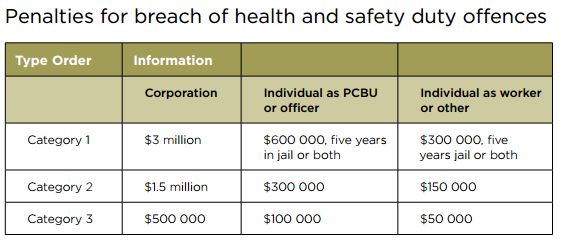Victoria’s occupational health and safety (OHS) strategy has been in a bit of a mess since the previous (conservative) government opted out of the harmonised work health and safety law process and brands were changed and changed again. It lost its claim to be leading Australian in OHS, or needed to explain its position, where before most people accepted their leadership position.
The current Victorian (Labor) government seems to be trying to make up some of that ground by increasing financial penalties, as reported by OHSAlert last week.
The Minister for Finance (and Workcover) Robin Scott entered a Bill in Parliament on March 9 2016 that increases the maximum penalty for a body corporate that recklessly endangers a person at a workplace from its current level of A$1,300,000 to over $3,000,000. The Bill and Explanatory Memorandum are available online.
In Hansard, Scott offered the following example of the need to increase this particular penalty:
“An example of an offence under section 32 is an employer failing to repair brakes on a truck that they know are faulty.” (page 19)
(Orbit Drilling, anyone?)
The example would indicate that the previous case is the motivation for change but the size of the change is remarkably coincidental in its proximity to National Work Health and Safety law penalties. Safe Work Australia’s Guide to the WHS Act includes the following penalties table (page 36) where category 1 is the equivalent to Victoria’s ‘reckless endangerment”.
In some ways, the increased penalty is an indication of how OHS laws and penalties can be harmonised without a big fuss. And how important are penalties anyway? The deterrence factor has been overstated in the past and has pushed some companies to increase their insurance coverage rather than address safety needs.
At the least, it shows that Victoria is now looking across the borders for information rather than sitting on its own side of the river giving everybody the finger.


We hold our breath in anticipation, but the devil will be in the detail such as small changes relating to classified plant that have already crept in removing some items from such control already.
Your last comment re insurance and reckless endangerment gives cause for concern if employers opt down that road as I would think insurers would be pretty smart to couple gross negligence and reckless endangerment in the same clause to prevent such claims occurring and reinforce the scenario of not being able to insure for such acts or omissions.